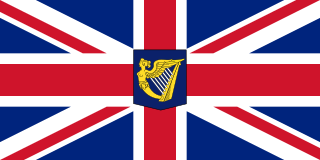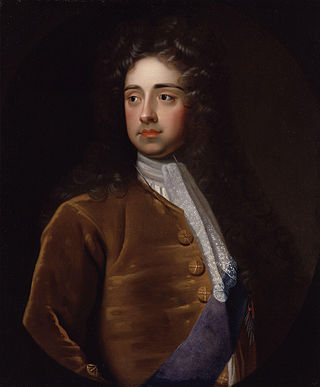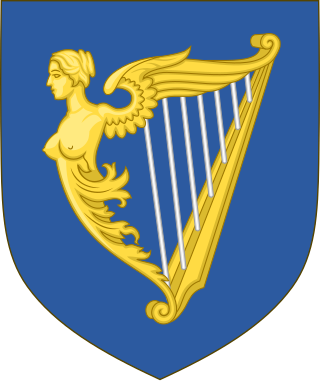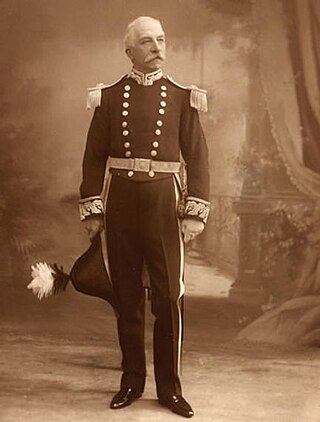Contents
| |||||
| Centuries: | |||||
|---|---|---|---|---|---|
| Decades: | |||||
| See also: | Other events of 1288 List of years in Ireland | ||||
This article needs additional citations for verification .(February 2024) |
Events from the year 1288 in Ireland.
| |||||
| Centuries: | |||||
|---|---|---|---|---|---|
| Decades: | |||||
| See also: | Other events of 1288 List of years in Ireland | ||||
This article needs additional citations for verification .(February 2024) |
Events from the year 1288 in Ireland.

Anglo-Irish people denotes an ethnic, social and religious grouping who are mostly the descendants and successors of the English Protestant Ascendancy in Ireland. They mostly belong to the Anglican Church of Ireland, which was the established church of Ireland until 1871, or to a lesser extent one of the English dissenting churches, such as the Methodist church, though some were Roman Catholics. They often defined themselves as simply "British", and less frequently "Anglo-Irish", "Irish" or "English". Many became eminent as administrators in the British Empire and as senior army and naval officers since the Kingdom of England and Great Britain were in a real union with the Kingdom of Ireland for over a century, before politically uniting into the United Kingdom of Great Britain and Ireland in 1801.

Lord Lieutenant of Ireland, or more formally Lieutenant General and General Governor of Ireland, was the title of the chief governor of Ireland from the Williamite Wars of 1690 until the Partition of Ireland in 1922. This spanned the Kingdom of Ireland (1541–1800) and the United Kingdom of Great Britain and Ireland (1801–1922). The office, under its various names, was often more generally known as the Viceroy, and his wife was known as the vicereine. The government of Ireland in practice was usually in the hands of the Lord Deputy up to the 17th century, and later of the Chief Secretary for Ireland.

The Lord Mayor of Dublin is the honorary title of the chairperson of Dublin City Council which is the local government body for the city of Dublin, the capital of Ireland. The incumbent, since December 2024, is Fine Gael councillor Emma Blain who was elected to the position following James Geoghegan's election to Dáil Éireann at the 2024 Irish general election. The office holder is elected annually by the members of the council.

A lord-lieutenant is the British monarch's personal representative in each lieutenancy area of the United Kingdom. Historically, each lieutenant was responsible for organising the county's militia. In 1871, the lieutenant's responsibility over the local militia was removed. However, it was not until 1921 that they formally lost the right to call upon able-bodied men to fight when needed.

The Lord Chancellor, formally titled Lord High Chancellor of Great Britain, is a senior minister of the Crown within the Government of the United Kingdom. The lord chancellor is the minister of justice for England and Wales and the highest-ranking Great Officer of State in Scotland and England, nominally outranking the prime minister. The lord chancellor is appointed and dismissed by the sovereign on the advice of the prime minister. Prior to the union of England and Scotland into the Kingdom of Great Britain, there were separate lord chancellors for the Kingdom of England and the Kingdom of Scotland. Likewise, the Lordship of Ireland and its successor states maintained the office of lord chancellor of Ireland until the establishment of the Irish Free State in 1922, whereupon the office was abolished.

The Lord High Treasurer was an English government position and has been a British government position since the Acts of Union of 1707. A holder of the post would be the third-highest-ranked Great Officer of State in England, below the Lord High Steward and the Lord High Chancellor of Great Britain.

The Court of King's Bench was one of the senior courts of common law in Ireland. It was a mirror of the Court of King's Bench in England. The Lord Chief Justice was the most senior judge in the court, and the second most senior Irish judge under English rule and later when Ireland became part of the United Kingdom. Additionally, for a brief period between 1922 and 1924, the Lord Chief Justice of Ireland was the most senior judge in the Irish Free State.

The Chief Secretary for Ireland was a key political office in the British administration in Ireland. Nominally subordinate to the Lord Lieutenant, and officially the "Chief Secretary to the Lord Lieutenant", from the early 19th century until the end of British rule he was effectively the government minister with responsibility for governing Ireland, roughly equivalent to the role of a Secretary of State, such as the similar role of Secretary of State for Scotland. Usually it was the Chief Secretary, rather than the Lord Lieutenant, who sat in the British Cabinet. The Chief Secretary was ex officio President of the Local Government Board for Ireland from its creation in 1872.
The Lord High Chancellor of Ireland was the highest judicial office in Ireland until the establishment of the Irish Free State in 1922. From 1721 to the end of 1800, it was also the highest political office of the Irish Parliament: the Chancellor was Speaker of the Irish House of Lords. The Lord Chancellor was also Lord Keeper of the Great Seal of Ireland. In all three respects, the office mirrored the Lord High Chancellor of Great Britain.

In the United Kingdom, a deputy lieutenant is a Crown appointment and one of several deputies to the lord-lieutenant of a lieutenancy area – an English ceremonial county, Welsh preserved county, Scottish lieutenancy area, or Northern Irish county borough or county. Before the creation of the Irish Free State, all Irish counties had deputy lieutenants.
Events from the year 1186 in Ireland.
Events from the year 1459 in Ireland.
Events from the year 1513 in Ireland.
The following events occurred in Ireland in the year 1494.
Events from the year 1385 in Ireland.
Events from the year 1382 in Ireland.
Events from the year 1695 in Ireland.
By-elections to the House of Lords occur when vacancies arise among seats assigned to hereditary peers due to death, resignation, or disqualification. Candidates for these by-elections are limited to holders of hereditary peerages, and their electorates are made up of sitting Lords; in most cases the electorate are those sitting hereditary peers of the same party affiliation as the departed peer.
Events from the year 1687 in Ireland.
Events from the year 1245 in Ireland.